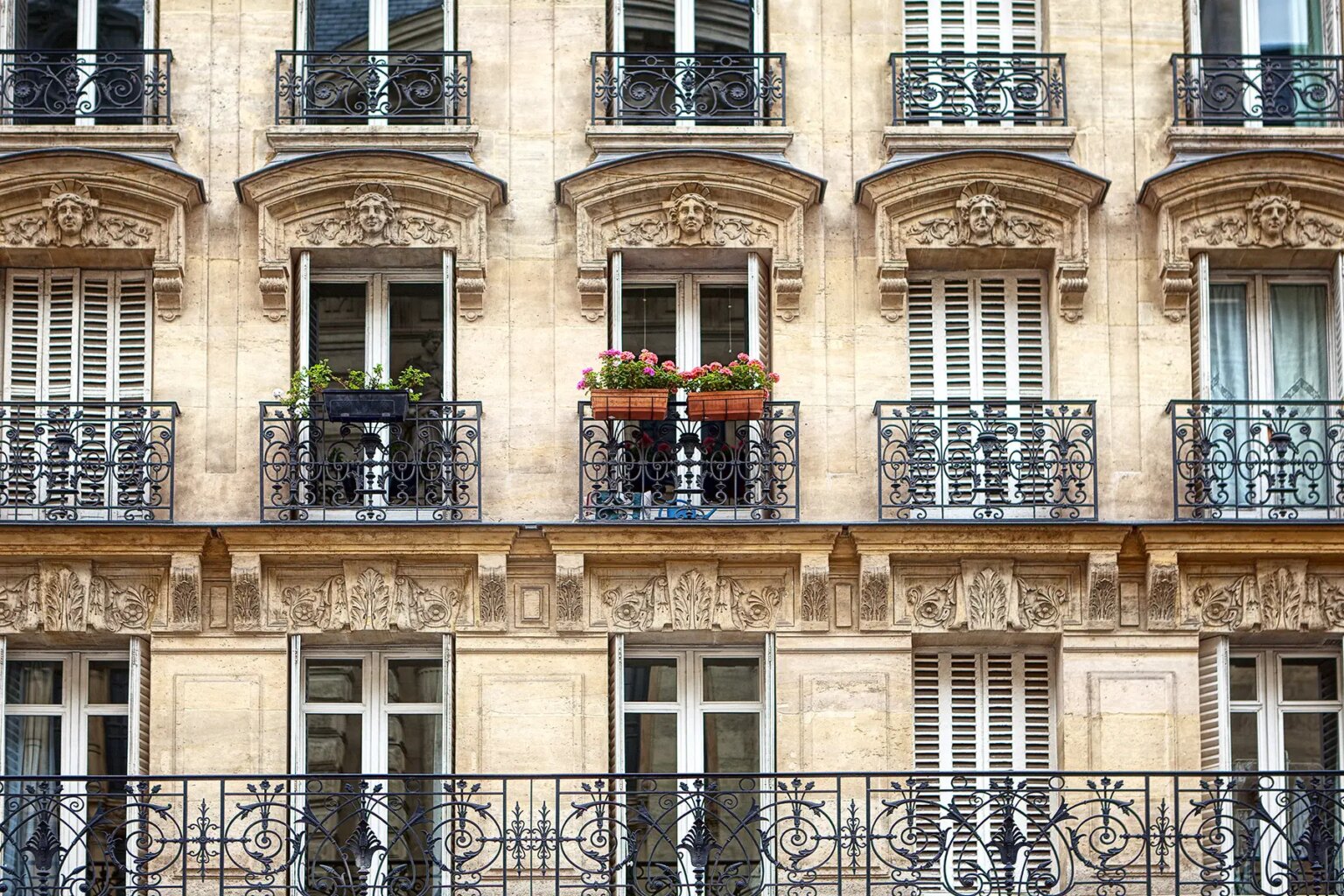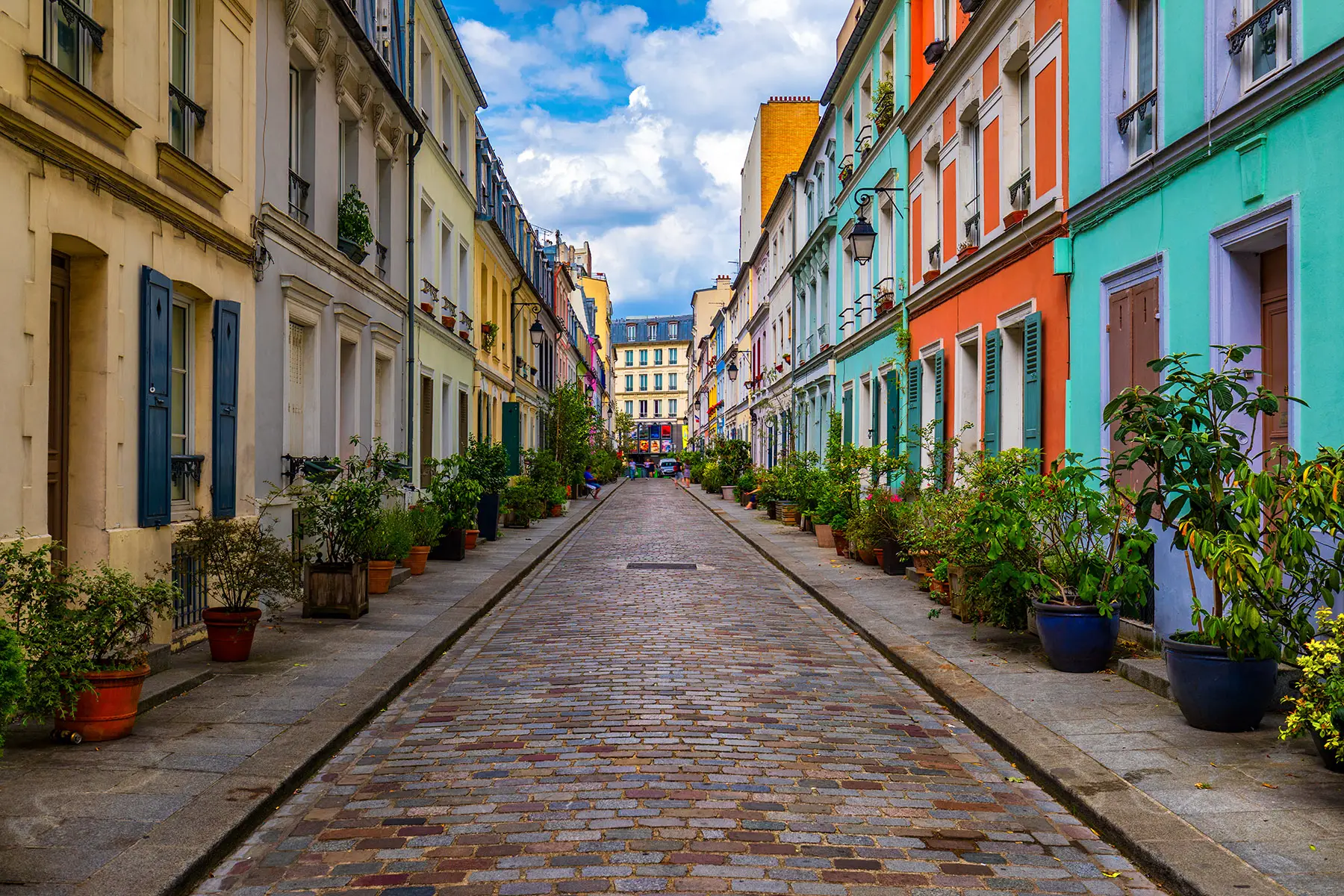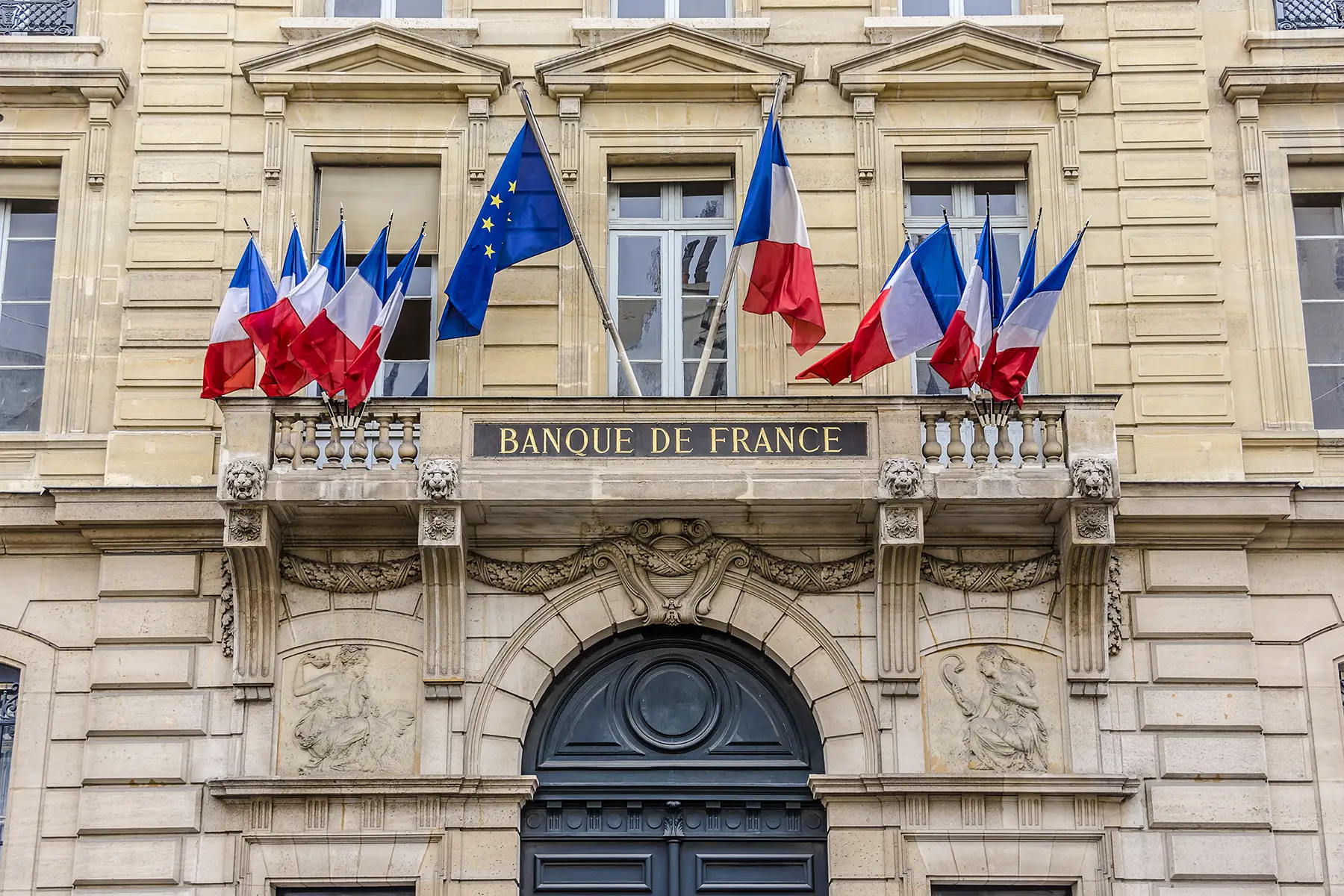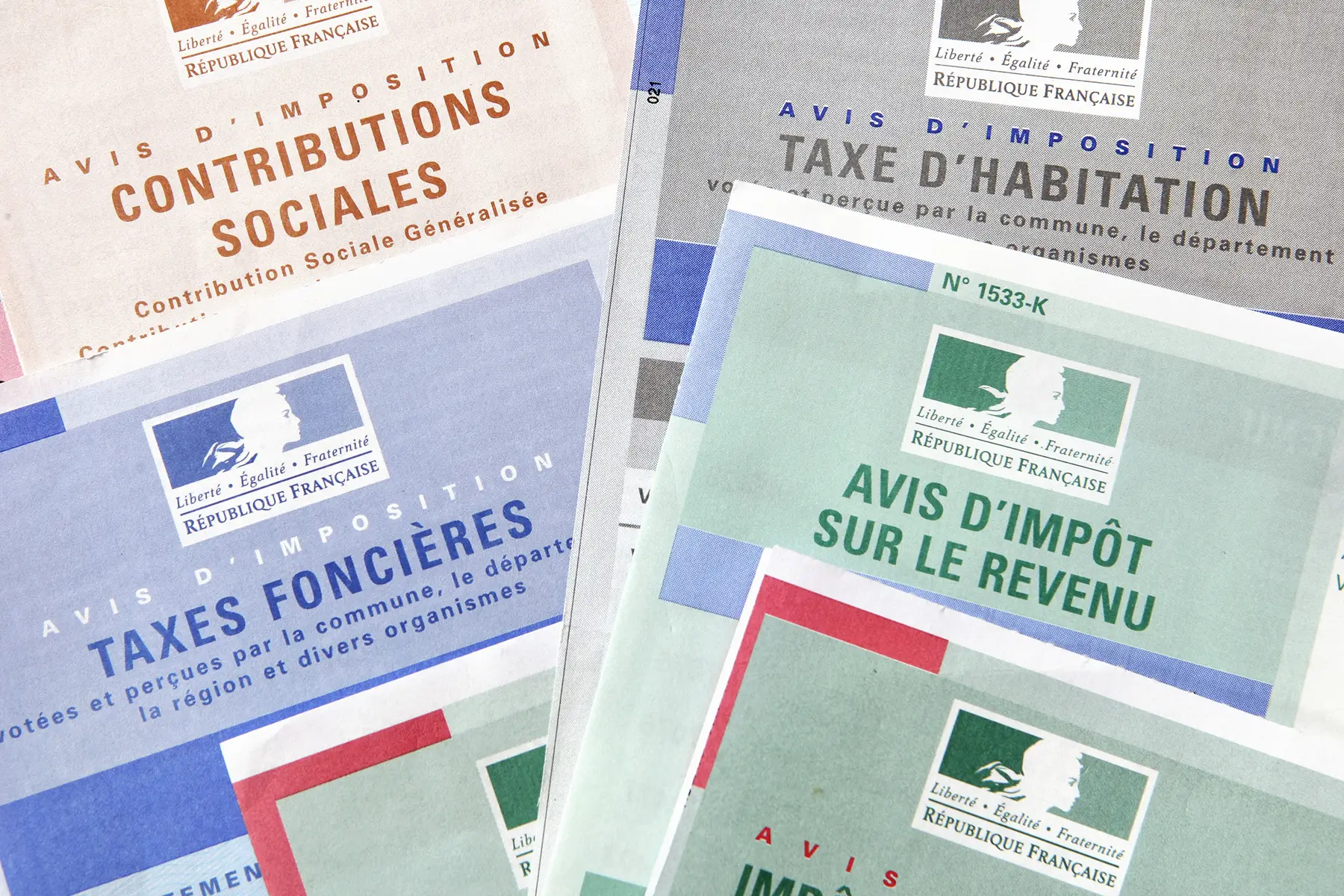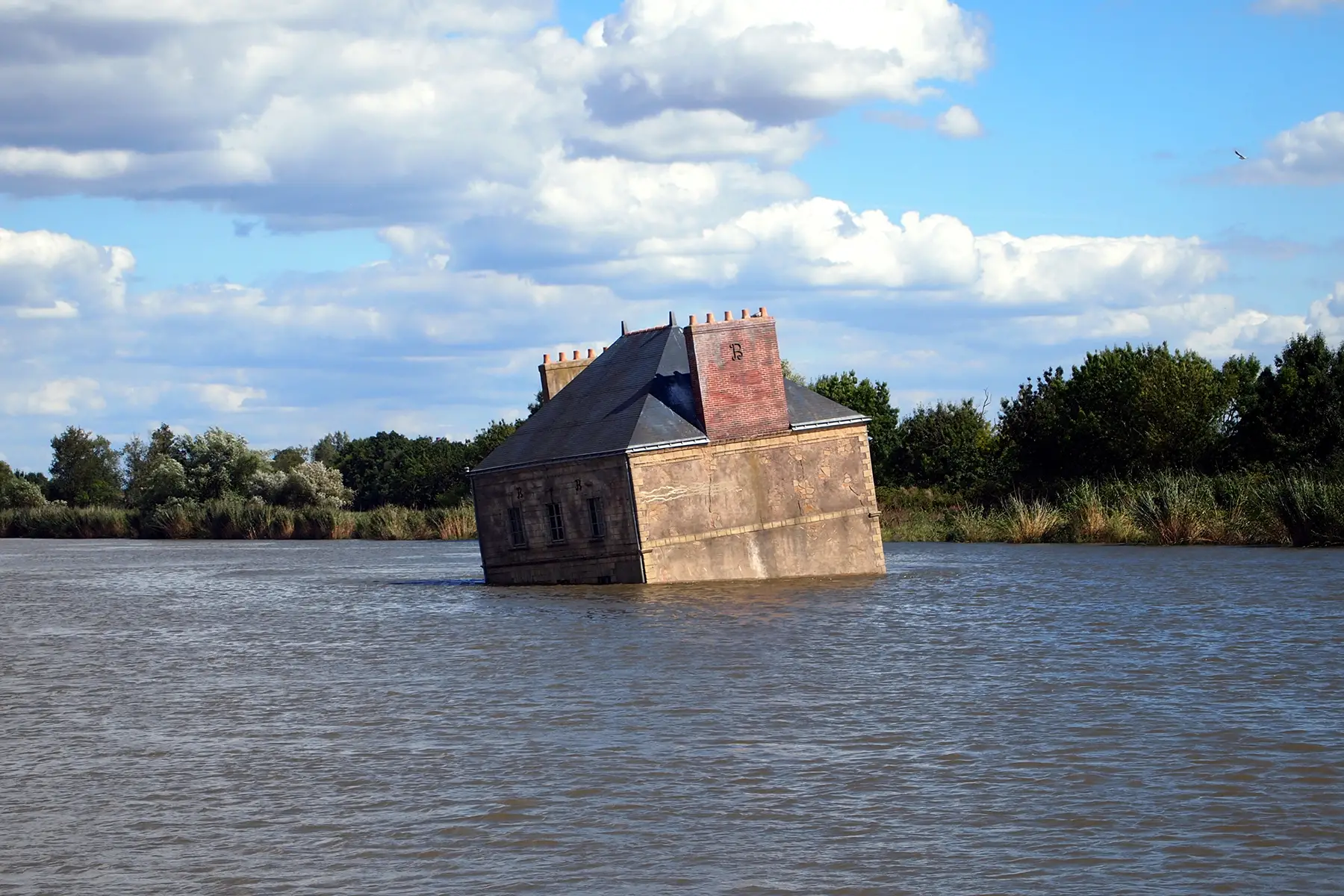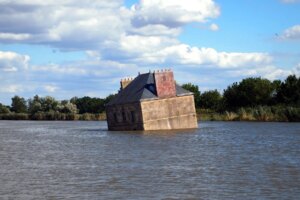If you’re moving to France and considering a mortgage, you might be wondering how to secure financing. Getting a French mortgage as an expat can feel complex or costly – especially if you’re unfamiliar with the local mortgage process. However, France has a strong housing market, plenty of options for foreigners, and relatively low mortgage rates.
Read on to discover how to get a mortgage in France in 2025, including:
- Mortgages in France
- Can you get a mortgage in France as a foreigner?
- 2025 French mortgage rates
- How much can you borrow for a French mortgage?
- Types of mortgages in France
- French mortgages for other purposes
- Green mortgages in France
- How to apply for a mortgage in France in 2025
- The mortgage application process: step by step
- Help getting a French mortgage
- Mortgage fees and costs in France
- Taxes and tax relief on French mortgages
- Do you need property insurance to get a mortgage in France?
- How do mortgage repayments work in France?
- Refinancing a mortgage in France
- Useful resources
Societe2Courtage
Need help getting a mortgage in France? Societe2Courtage can help. Their dedicated team of experts will find the best financial conditions from French banks. Whether you're buying a chalet in Chamonix or a beachside bungalow in Biarritz, speak to the mortgage experts at Societe2Courtage today and make your dreams a reality.
Mortgages in France
The French property market is one of Europe’s core performing markets and has relatively low mortgage rates in 2025. France remains a good option for getting a mortgage as an expat thanks to its stable market, fairly robust regulations, and lack of restrictions on foreign ownership.
Despite historical low rates during the period of 2015–2021 (1–2%), the mortgage rates skyrocketed to >4% in 2022–23. Since then, rates have been more than halved from around 4.5% in 2024 to 3.5% in 2025, according to data from Statista. In comparison, the mortgage rates in North America went up from around 3% to 8% and are still at 6–7% in 2025.
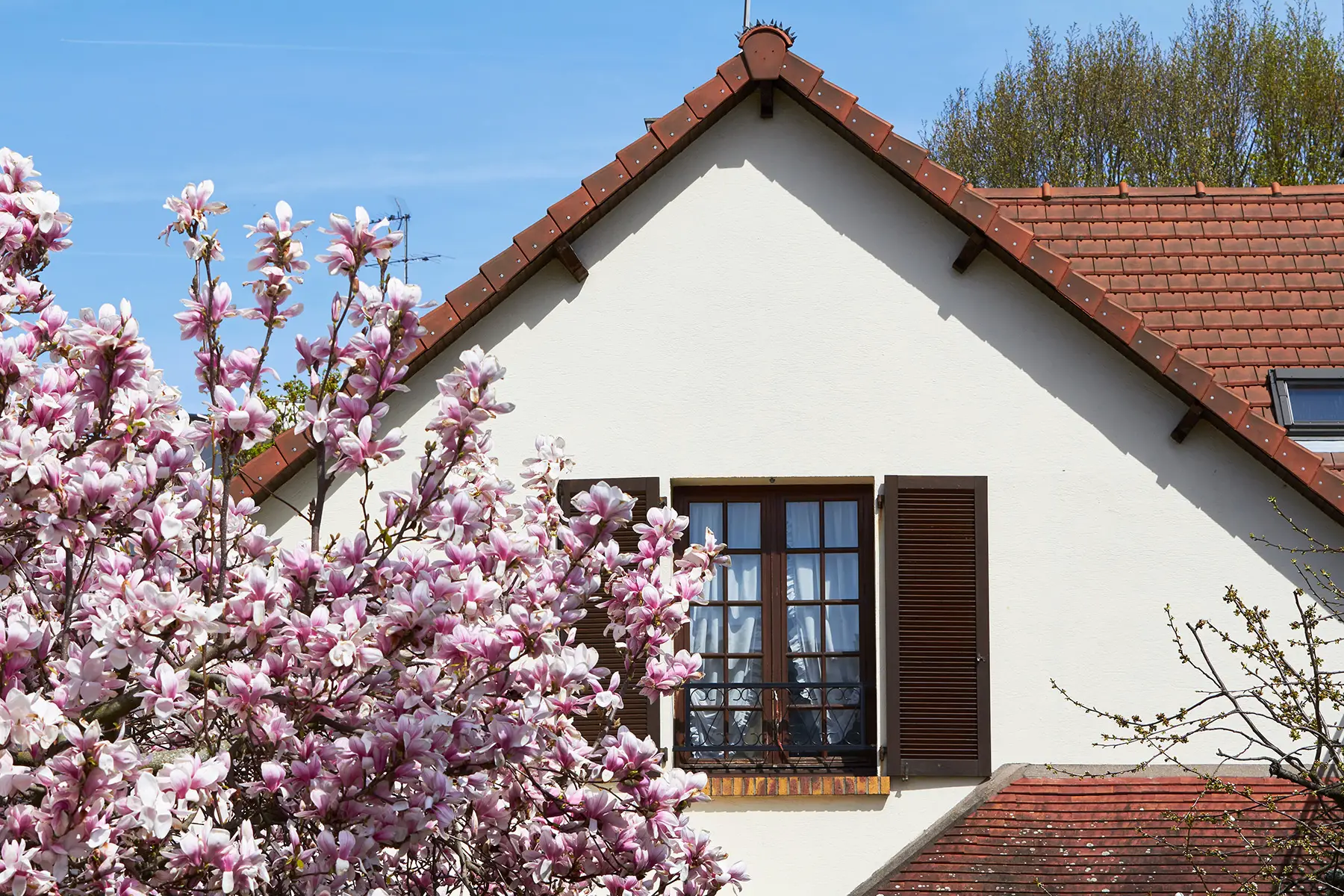
Can you get a mortgage in France as a foreigner?
French lenders offer mortgages to both residents and non-residents. In fact, specialized brokers like Societe2Courtage offer services to residents of all countries and over 60 different nationalities.

Director, Societe2Courtage
Thomas Nivert
Insider Tip: Mortgage eligibility
Foreigners are legally entitled to apply for mortgage loans in France. In practice, a deposit of more or less 30% is usually enough, and neither your nationality nor your country of residence will be deal breakers.
Financial requirements for a French mortgage
You’ll need to meet income requirements and provide a minimum deposit (more details on amounts below). Self-employed individuals need to show a set of audited accounts for at least three years.
Lenders may want to check your credit history and current assets, and some have age restrictions. For example, you may find it difficult or more expensive to get a French mortgage if you’re over the age of 65.
French mortgages are usually only available with a property purchase agreement, but you can sometimes secure a certificate of commitment (lettre de confort) from a mortgage lender, which lasts three or four months. These letters aren’t contractually binding, but can give the seller reassurance that you’re a serious buyer.
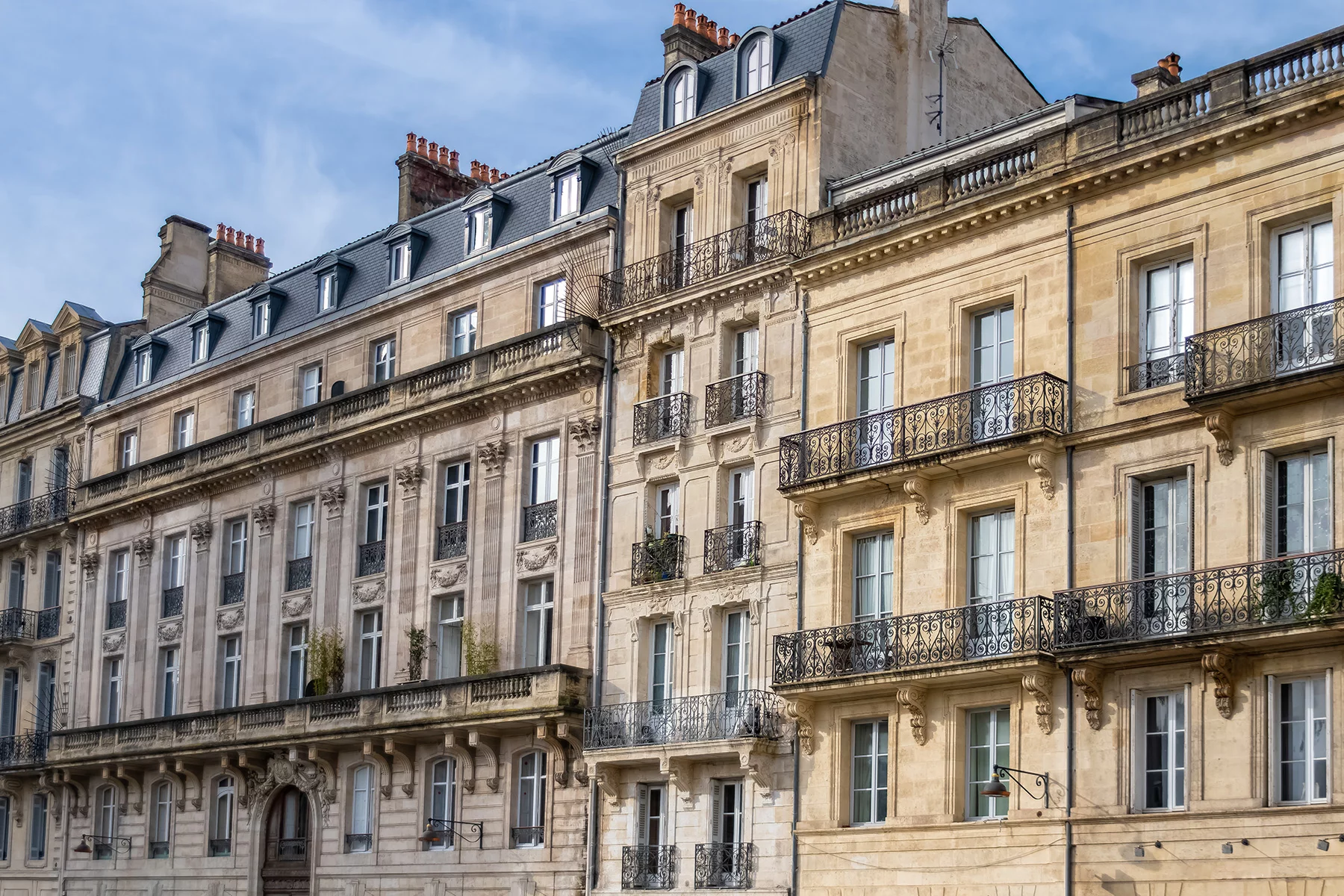
Mortgage lenders in France will usually require you to have some form of capital insurance protection, which covers your mortgage repayments in the event of serious illness or death. This isn’t legally mandated, but lenders will be unlikely to offer you a mortgage if you don’t take out suitable cover.
How much you might need to pay depends on your age, medical history and the level of protection you need. Thanks to recent reform though, medical tests are less in practice even if you are over the age of 60.
While French banks extend credit to foreign buyers, they may have additional requirements. For example, most banks will loan in the region of 70–85% of the property’s value. However, some non-EU applicants, such as US citizens, may require a bigger deposit to get accepted for a mortgage.
On occasion, foreign applicants may be required to deposit a set sum (for example two years’ worth of mortgage payments) into a savings account as collateral. This is determined on a case-by-case basis.
2025 French mortgage rates
Interest rates on mortgages in France depend on several factors, including:
- Amount you borrow
- Loan-to-value (LTV) rate
- Mortgage type
- Duration of mortgage
- Property type
- Your residency status
As of March 2025, mortgage interest rates in France have experienced a notable decline, aligning with recent economic developments. In January 2025, average rates stood at approximately 3.10% for 15-year loans, 3.30% for 20-year loans, and 3.50% for 25-year loans. Some borrowers have successfully negotiated even lower rates, such as 3% for 15-year terms.
How much can you borrow for a French mortgage?
French banks and other mortgage lenders are typically willing to lend between 70–80% of the property’s value (the LTV rate). For non-EU/EFTA nationals, the LTV rate is usually 50–70%. However, French citizens and permanent residents can sometimes borrow up to 100%, usually with the provision that a percentage of this is placed in a savings account with a French bank.

Your income also influences the amount you can borrow. The legal requirement for French mortgages is that your total monthly liabilities – including mortgages and insurance – must be no more than 35% of your gross monthly household income. Types of income lenders will consider include:
- Salaried income
- Business income
- Pension income
- Existing rental income from other properties
- Dividends with a three-year track record (on some occasions)
- Other regular investment income
If you are self-employed or a freelancer, you will need to show business statements evidencing your income for the last three years.
Most mortgage providers in France have a minimum amount they will agree to lend. This is typically around €100,000, although it may be higher with some lenders. It may also be higher for non-EU/EFTA nationals.
Upscore
With Upscore, you can get a mortgage in France using income from your home country, with lenders matched to your needs. They allow you to apply remotely, compare rates, and get personalized support. Get the most value out of your financial data and unlock opportunities wherever you move with Upscore.
French mortgage calculator
You can use the following free tools to calculate your estimated monthly repayments and how much you can borrow:
Types of mortgages in France
France has an established mortgage industry, and experience in dealing with foreign buyers. However, you may find fewer product variations than in some other countries. Here are the main types of mortgages in France.
Fixed-rate mortgages in France
Fixed-rate mortgages are the most common type of home loan in France. These are usually repayable over a period ranging between six and 25 years, with 20 years most common. Fixed-rate mortgages are often set at a higher rate than variable deals, but this comes with the additional security of knowing your repayments won’t increase.

Flexible mortgages provide the security of a fixed interest rate, but allow borrowers to vary their monthly payments based on their circumstances. Typically, the lender sets upper and lower payment limits, but, in some cases, payments can be suspended for up to two years or increased by up to 30% for a quicker payoff.
Of course, rates for these features can be higher, so it’s only worth choosing them if you’re sure you’ll use them.
Variable-rate French mortgages
Variable-rate mortgages in France hinge upon the three-month or one-year Euribor rates plus a 1–2% margin, so it can be difficult to get a transparent picture of long-term rates.
You can also opt for a mixed mortgage in France, where you set a fixed rate for a set period (usually 2–5 years), after which it moves to a variable-rate mortgage.
Interest-only mortgages
When borrowers take out interest-only mortgages, they pay back only the interest (and not the capital) for an agreed initial period. As buy-to-let mortgages aren’t commonly available, interest-only loans are popular for buyers who project themselves in France for a period of +/- 10 years.
The interest only is a strong leverage however, a minimum size applies (usually a minimum €1M property value) so it can be difficult for foreign buyers to take out this type of mortgage.
Capped-rate mortgages
This is a recent introduction to the French mortgage market and is available to non-residents. This is similar to a variable-rate mortgage, but it includes a capped upper limit for all or part of the repayment term.
Capped-rate mortgages are popular with buyers who are worried about rates suddenly rocketing beyond what they can reasonably afford. However, they usually come with slightly higher fees.
Bridging loans
Borrowers in France also have access to bridge loans, designed specifically for buyers who are ready to purchase property but are waiting for the sale of their existing property. Such loans are short-term solutions. However, you may extend them for up to two years.

Bridging loans are similar to mortgages in France, in that you can usually only borrow the same amount that you’d get through a mortgage (usually 70–85% of the property value). This is generally up to a maximum of around €15 million. However, the interest rates are typically much higher than with a mortgage.
French mortgages for other purposes
You can find providers of other mortgage products in France, including:
- Buy-to-let mortgages – for property purchases where you aim to profit from renting it. Not all French lenders offer these, but they are available. However, interest rates are typically higher for non-resident buyers.
- Commercial mortgages – for business premises in France. These usually require a bigger deposit, but allow you to borrow larger sums of money.
- Renovation mortgages – many lenders in France are willing to finance large-scale home improvement projects with a renovation mortgage. However, if you are looking to buy and refurbish a derelict building such as an old château, it is more difficult (but not impossible) to get financed. For works costing less than €150,000, you will typically need to take out a standard home renovation loan. Renovation loans are only available for improvements costing up to 30% of the property’s overall value, and can run alongside the standard mortgage.
- Construction mortgages – you can also find mortgages in France to finance the building of a property if you have already purchased the land. The loan-to-value (LTV) ratios are typically the same as standard mortgages.
Green mortgages in France
The idea of eco-friendly living spaces has gained momentum in France, as it has in much of Europe. In 2015, the financing of green building and renovation projects reached €14.5 billion. Much of the funding available for residents has been in the form of public subsidies, tax incentives, and financing, such as interest-free eco-loans (eco-PTZ) of up to €50,000 for home energy renovations.
However, there is still some way to go in terms of making French homes energy-efficient. Less than a quarter of French properties (24.6%) have an energy-efficiency rating of A, B, or C. This is lower among privately-owned homes.

You can qualify for a green mortgage in France if you buy a property that meets energy efficiency standards. French banks, including Groupe BPCE and the Caisse des Dépôts Group, have signed up to an EU-wide green mortgage scheme offering lower interest rates and other preferential financial options to fund the purchase of eco-friendly properties. Check with your provider to see what discounts and initiatives they offer before signing a mortgage agreement.
How to apply for a mortgage in France in 2025
Applying for a French mortgage is relatively straightforward and similar to other countries.
In France, many banks offer mortgages to foreigners buying property. There are also some specialized mortgage providers focusing on expat mortgages and services. It can be worth consulting several mortgage lenders to see which one will give you the best interest rate.
Online platforms such as Upscore can also help you find a lender that meets your needs.
Through a bank
Many French and international banks offer mortgages to property buyers in France. These include:
- HSBC
- BNP Paribas
- Société Générale
- CIC
Through a mortgage broker
You can also use the services of a mortgage broker in France, such as Societe2Courtage, who will help you find the best deals and take care of the application. Check our Directory for details of expat-friendly mortgage brokers.
Documents you need for the application
When applying for a mortgage in France, you will usually need the following:
- Completed mortgage application form
- Copies of the borrower’s passports
- Proof of income (self-employed individuals need audited financial statements for three years)
- Bank account details, usually with a bank operating in France
- Bank statements for the last three months
- Proof of current address, for example, utility statements or a rental agreement
- Statement of assets
- Completed preliminary sales agreement
- If the property is new or to be renovated, written estimates or invoices from French-registered tradespeople and copies of their certificate of insurance
- If improvements are to be constructed on the property, a property title or preliminary sales agreement for the land, building license, and the building contract and plans
- The title deed or loan deed with a complete repayment table, if the property is to be financed with a remortgage or equity release
The mortgage application process: step by step
Preliminary financial assessment
Evaluate your financial situation with a broker or bank to determine how much you can borrow based on your income, debts, and savings.
Agreement in Principle (AIP)
Obtain an initial lender’s approval indicating your eligible loan amount.
Property selection
Find and negotiate the property you wish to purchase, signing the preliminary sales agreement (compromis de vente).
Mortgage application
Complete the formal application, providing all required financial documentation to the lender.
Mortgage offer acceptance
Review and officially accept the lender’s mortgage offer after approval.
Completion and notary signing
Finalize the purchase transaction and sign all legal documents at the notary’s office.
Help getting a French mortgage
Those who need help getting a French mortgage may be able to access a government-regulated or subsidized loan – usually only if they are French citizens, however. The most common of these is the interest free loan (Prêt à taux zéro – PTZ).
This is available for first-time buyers or those that have not owned a property for at least two years. In addition, you can obtain a PTZ if you have a disability card (Carte mobilité inclusion – CMI) and are unable to work, or if you need a mortgage to renovate a property made uninhabitable by a natural disaster.
PTZ loans are also conditional on income and resources. The income thresholds depend on location (split into four zones – A, B1, B2, and C) and the number of occupants. You cannot use a PTZ to finance 100% of a property purchase, so you need to combine it with your own funding or another mortgage.
Other support available includes:
- Employer mortgage loans (prêt action logement) – low-rate loans for employees of private companies with 10 or more employees, with interest rates of 0.5%. You can borrow up to a maximum of €40,000.
- Social accession loans (prêt d’accession sociale) – similar to the PTZ, these are available to those who meet low-income requirements. However, the interest rate is capped rather than scrapped.
- Home purchase savings accounts (compte épargne logement – CEL and plan d’épargne logement – PEL) – high-interest savings accounts geared towards saving for a French mortgage.
Mortgage fees and costs in France
Mortgage costs in France depend on multiple factors – they are usually more expensive for existing properties than new builds. You can expect to pay between 10-15% of the purchase price in total transaction costs, including taxes and insurance.
Fees relating to the mortgage include:
- Mortgage arrangement/administration fees – typically around 0.5–1% of the loan amount (plus VAT)
- Mortgage broker – around 1% of the loan amount
- Notary fees – usually 2–3% for a new built property and 8% for a property older than five years
- Valuation survey – sometimes a requirement of lenders, costs around €250
Taxes and tax relief on French mortgages
When taking out a mortgage in France, you’ll typically be liable for several taxes. The primary one is property tax (taxe foncière), an annual tax based on your property’s rental value multiplied by a rate set locally.
Exemptions and reductions may apply for new builds (2-year exemption), energy-saving renovations (up to 5-year reductions), or based on your age, disability, or income status.
Other taxes related to French mortgages include:
- Real estate wealth tax (IFI) for properties valued over €1.3 million
- Stamp duty (included in notary fees)
- Capital gains tax upon sale (depending on your length of ownership)
- Housing tax (taxe d’habitation)—currently being phased out
- Taxes on vacant properties in certain urban or tourist areas.
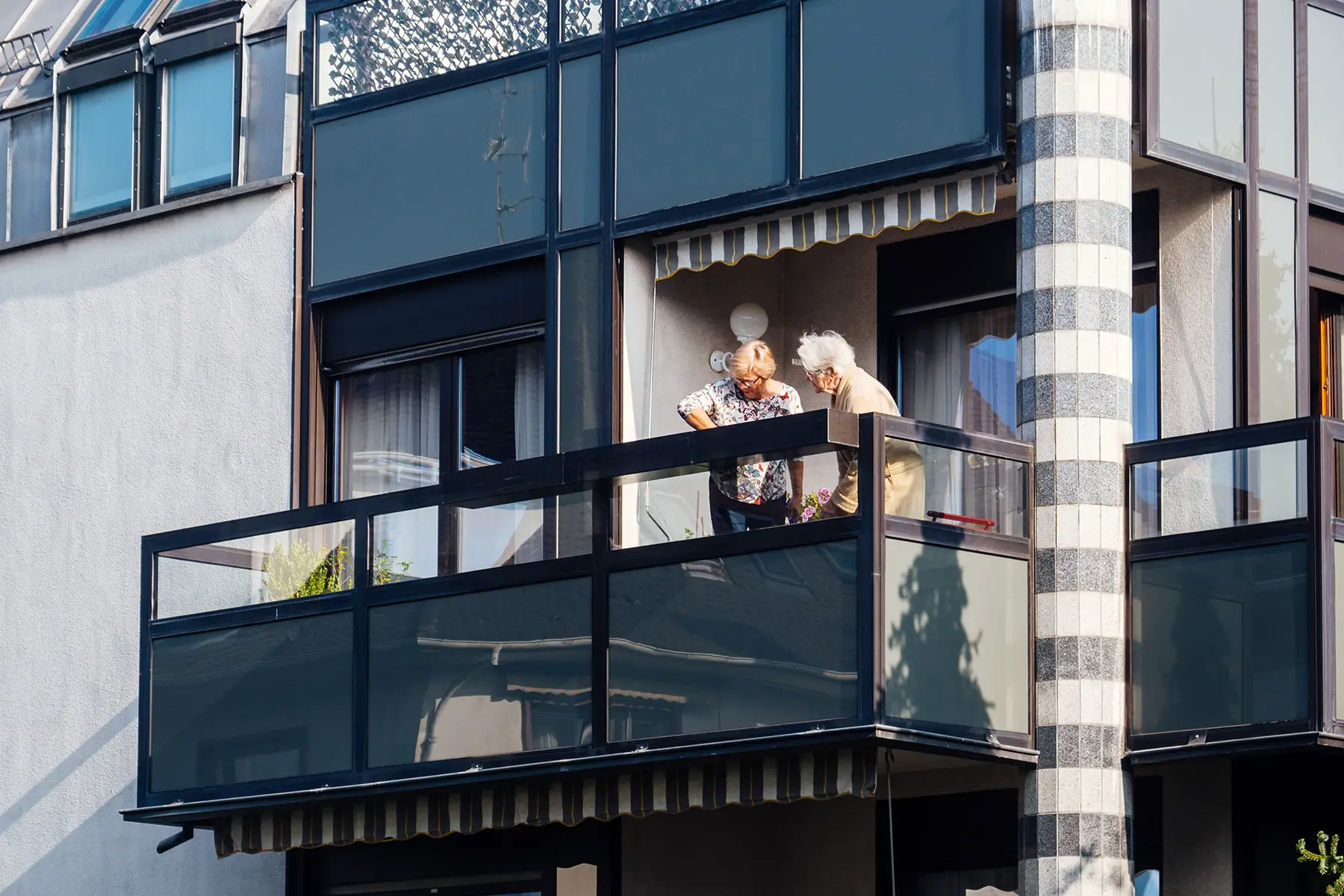
France also offers tax relief schemes: mortgage interest payments can be deducted from rental income taxes if the property is rented out, and the value of your primary residence is reduced by 30% when calculating IFI.
Do you need property insurance to get a mortgage in France?
Most mortgage lenders in France insist that you take out insurance coverage to protect the outstanding balance in the event of death or life-limiting injury. Many lenders also have a home insurance policy as a requirement. This covers damage to the building, but people often choose to take out multi-risk policies that also cover contents and third-party liability.
If you buy a new-build home or carry out extensive renovation work on your home, you’ll usually need to take out a construction insurance policy that protects you against defects for the first ten years. This is included with many multi-risk plans.
How do mortgage repayments work in France?
French mortgage repayments are typically made monthly and include loan repayment plus interest, although interest-only options may be available for an initial period or during a repayment holiday (usually 6–36 months).
Early mortgage repayment is allowed, but penalties (capped at 3% of the outstanding balance or six months’ interest) might apply, especially for fixed-rate loans, whereas variable-rate loans rarely incur these fees. Penalties cannot be imposed in cases of death, job loss, or a property sale linked to employment changes.
If you struggle with repayments, lenders usually offer renegotiation or temporary relief, and in severe cases, you can seek assistance online from France’s Over-indebtedness Commission (Commission départementale de surendettement) to avoid repossession.
Refinancing a mortgage in France
Refinancing your mortgage – essentially, paying off your existing home loan by taking out a new one – is possible in France. However, this is not as common as it is in other countries, such as the UK. Therefore, there are fewer remortgaging products on the French market than in many other countries, and costs are quite high, which can offset potential financial benefits.
You might want to look at remortgaging your property to take advantage of lower interest rates or to release equity for other purposes, for example, renovations or the purchase of another property. However, be prepared for costs such as:
- Higher interest rates. Many lenders offer higher rates on repayments for clients looking to remortgage.
- Lenders also often offer lower LTV rates on mortgage refinancing, for example, 75% rather than 85%.
- Administration costs, including notary fees, which can total around 3–5% of the loan costs.
- Early repayment fees on your existing mortgage, which many lenders charge.
Useful resources
- Service-Public – French government website with information on real estate credit (in French)
- National Agency for Housing Information (L’Agence Nationale pour l’Information sur le Logement – ANIL) – information and advice on various French housing and property issues (in French)
- Notaires.fr – official website of French notaries, including a directory of French notaries
- European Directory of Notaries – find an English-speaking notary
